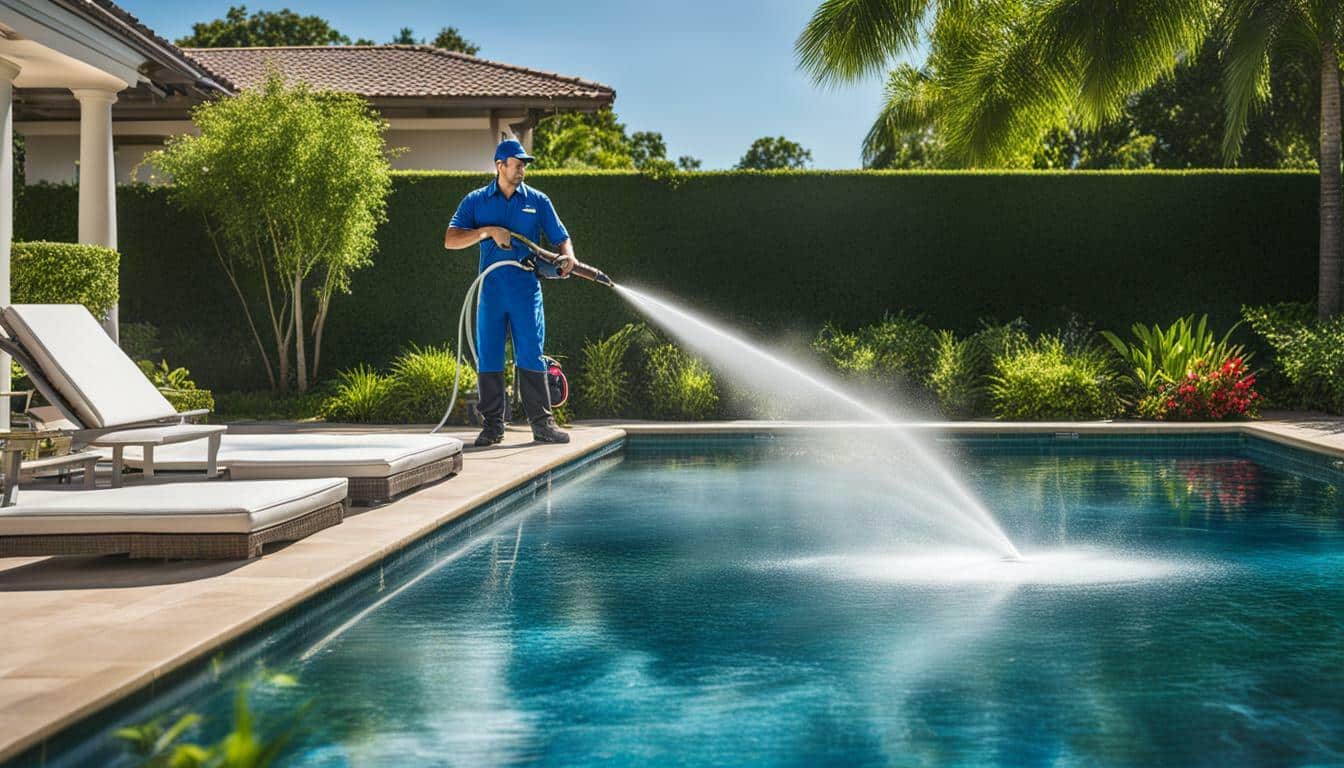When it comes to maintaining a spotless swimming pool, many homeowners concentrate on the water quality and landscaping, neglecting one important aspect: the pool tiles. Pool tile cleaning is frequently neglected, yet it plays a significant role in the overall aesthetic and health of your pool. Over Acid Washes , tiles can collect unsightly stains, calcium buildup, and grime, making your treasured oasis appear untended. The truth is, cleaning your pool tiles is vital, not only for appearance but also for extending the life of your pool.
So how regularly should you clean your pool tiles? This is based on several factors, including the frequency of use, water quality, and environmental conditions. Though a DIY approach may seem tempting, professional cleaning services can provide thorough solutions that maintain your tiles and enhance your pool's overall look. Whether you are preparing for the summer swimming season or planning for a pool party, ensuring your tiles are immaculate can make a world of difference the appeal of your outdoor space.
The Significance of Pool Tiles Maintenance
Keeping clean pool tiles is essential for the functional reasons. Over time, dirt, algae, and mineral buildup can collect on the surfaces, making the pool look unattractive and murky. This buildup not only takes away from the beauty of your swimming area but can also suggest deeper problems with water chemistry and sanitation. A well-maintained pool begins with clean surfaces, which improves the overall experience and visual appeal of your swimming space.
Beyond appearance, neglected pool tiles can lead to significant damage over time. Mineral deposits can cause the tiles to break or fracture, leading to costly repairs in the future. Regular cleaning helps prevent this deterioration, extending the lifespan of your pool's surfaces and saving you costs on upcoming maintenance. With proper care, you can prevent the necessity for early resurfacing or replacement of surfaces.
Moreover, clean swimming tiles contribute to a safer swimming environment. If surfaces are unclean, they can harbor bacteria and algae that may present health risks to swimmers. By investing in routine tile cleaning, you not only maintain your pool looking its best but also guarantee that it stays a safe place for family and friends to enjoy. Clean surfaces play a key role in maintaining the overall cleanliness of the pool, allowing you to jump in without worry.

Professional vs. DIY Pool Tile Cleaning
When it comes to pool tile cleaning, choosing between do-it-yourself approaches and hiring a qualified service can be a tough decision. Do-it-yourself cleaning can seem appealing due to the potential financial benefits. Many pool owners attempt to handle tile cleaning themselves using commercial products or self-prepared solutions. However, this approach often neglects the intricacies of thoroughly restoring tiles, especially when dealing with issues like mineral deposits or stubborn stains. A lack of proper techniques and tools may result in ineffective cleaning and even harm to your tiles.
On the other hand, professional pool tile cleaning services come armed with specialized tools and knowledge that ensure a more efficient and effective clean. These professionals understand the details of different tile materials and the optimal methods for maintaining their integrity. They utilize state-of-the-art cleaning techniques such as glass bead blasting, which not only removes accumulation but also restores the tiles' original shine. This level of proficiency can save homeowners time and alleviate the risk of causing damage to their pool tiles.
Ultimately, while DIY cleaning can provide short-term results, spending in a qualified service offers long-lasting benefits. Regular professional cleaning not only enhances the appearance of your pool but also helps avoid further issues that could arise from neglecting tile maintenance. For many homeowners, the benefit of having sparkling, well-maintained pool tiles is worth the professional service expense.
Reducing Swimming Pool Ceramic Tile Damage
To sustain the durability and appearance of your swimming pool tiles, regular care is important. Implementing a regular maintenance routine can help stop dirt, moss, and mineral buildup from building up. Make it a habit to visually inspect your tiles on a weekly basis and perform light cleaning as required. This will not just ensure your surfaces looking great but also help detect possible issues in advance prior to they become greater significant problems.
Knowing the type of substances and products you use in your pool is crucial for ceramic tile preservation. Avoid harsh chemicals or corrosive solutions that can erode the grout and weaken the surfaces. Look into using pH-balanced products especially designed for swimming pools, as they are less likely to result in deterioration. Furthermore, make sure that pool furniture and decor placed along the edges of the swimming pool do not harm the surfaces over time.
In conclusion, the surrounding factors surrounding your pool can also play a significant role in tile health. Regularly trimming shrubs around the swimming pool can prevent foliage and debris from falling into the water, which encourages better hygiene. Additionally, using a swimming pool blanket during the off-season can reduce exposure to elements that lead to wear and deterioration on tiles. By taking these preventative steps, you can maintain your pool tiles looking immaculate for years to come.
